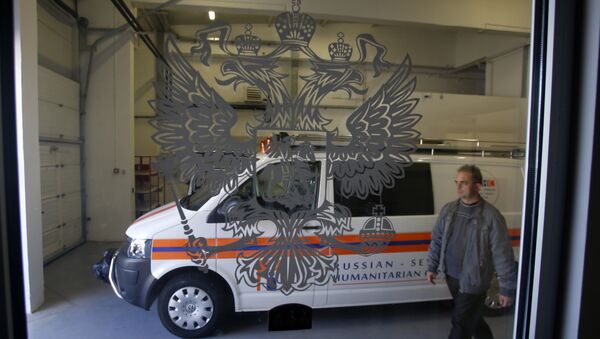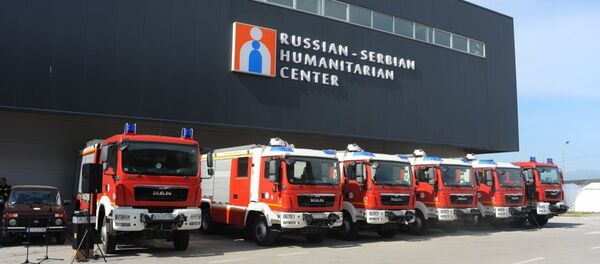It looks like the presence of a handful of Russians and about as many cats there has been enough to make many big shots in Washington lose sleep.
“Well, there are a couple of cats and several dogs living there, whose loud barking can be heard even in Kosovo. Plus four Russian civilian personnel, well advanced in years. Small wonder that they pose such a colossal threat to US national security,” Rogozin said in an interview with Sputnik Serbia.
When asked to say a few words about the Nis center and whether its staff should enjoy diplomatic immunity, Rogozin said that it was a Russian-Serbian idea to set up a joint disaster relief center in southern Europe so that in the event of an emergency help could be rushed in from nearby Serbia, not from faraway Russia.
“That’s why I think the Serbs have no need for any S-300 missiles, all they need to do to scare [the Americans] out of their wits is build a couple of wooden mockups. They always jump on someone who is weak. We should register the center and ensure diplomatic immunity for the personnel, just like what they have at any other international center in Serbia,” Dmitry Rogozin noted.
“Frankly speaking, we don’t really need this center, but we believe it is needed by the victims of forest fires and who are asking us for help,” Dmitry Rogozing emphasized.
On June 14, US Deputy Assistant Secretary of State for European and Eurasian Affairs, Hoyt Brian Yee expressed "concern" about a Russian-Serbian disaster relief center in Nis, which is located close to Serbia's border with Kosovo.
Yee said the US was concerned about the Nis center “not so much for what it is now, but what it might become if it receives what Russia has been asking from Serbia, which is some kind of special status, a protected diplomatic status or immunity."
He also stressed the need for Serbia to exercise full control over its territory.
The Russian-Serbian Humanitarian Center was established in Nis in April 2012. It provides humanitarian assistance in emergency situations in Serbia and other Balkan countries. It also provides training for emergency response groups.



